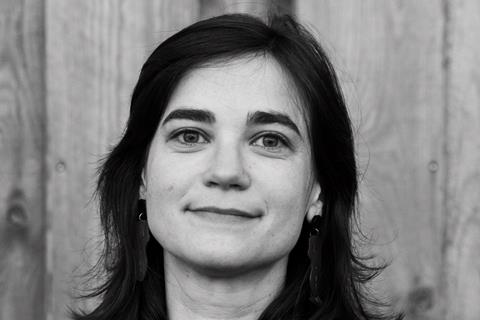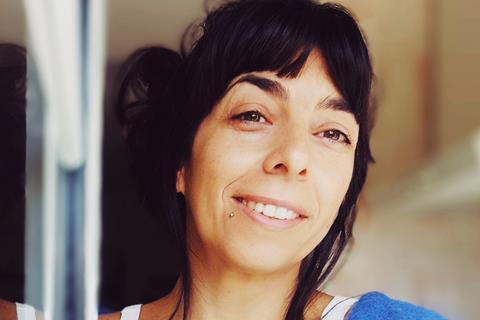
The parlous state of documentary distribution may have been a constant conversational theme among industry delegates at International Documentary Festival Amsterdam (IDFA) this week, but a notable number of executives said they are energised by the search to find new ways for films to reach audiences and are optimistic about the road ahead.
For the European documentary sector, the bad news is that at least one prominent documentary-focused sales agent has gone out of business over the last year, and documentary sales executives themselves are increasingly juggling other jobs in consultancy or teaching to make ends meet.
The good news is that new companies are being formed and some of the more established outfits are successfully rethinking their strategies.
Former Autlook executive Martina Droandi has just launched Vienna-based Odd Slice Films, which arrived at IDFA with an inaugural slate including Miguel Eek’s much-admired political documentary Amilcar, which world premiered in IDFA’s Envision and Olia Verriopoulou’s IDFA Luminous world premiere, Stories Of A Lie.
Droandi is optimistic she can help films connect with audiences.
“I am very excited to be back in the market. I am very positive because I have the energy,” Droandi says. “I like projects that generally might be hard to sell. I am up for the challenge. And I’m very interested in trying to get films for young audiences.”

She is calling for closer communication between sales agents themselves.
“It’s clear that the industry model that we’ve had up till now is not working so well. The theatrical chances are very small, the broadcasters are making fewer and fewer acquisitions. We need to think a bit more creatively about how we can find new models and try out new things so we can keep the industry alive.”
Odd Slice joins several other smaller-scale sales agencies representing auteur-driven work and looking for new ways to find audiences. They include Maria Vera’s Lisbon-based Kino Rebelde, which is handling Lynne Sachs’ Every Contact Leaves A Trace, a world premiere in IDFA’s Signed section and based around the 600 business cards Sachs has collected over the years.
“My idea is to connect with cinematheques, film archives, universities, libraries, museums, galleries and arthouse venues,” Vera says of the Kino Rebelde model.
“I have to plan in a very creative way because my films are not mainstream. And it is working. Just be honest. None of us are getting rich from this, but my company is surviving, the filmmakers have an income, and most importantly, they have recognition.”
Like Droandi, Vera calls on filmmakers themselves to become far more savvy about distribution and festival strategy.
“You [as a filmmaker] need to learn and navigate that part with more responsibility,” she says. “There are many filmmakers who arrive at a premiere and have not submitted the film to any festival afterwards, so you will have a gap of four months or six months. You need to work very, very hard. There is a lot of competition and fewer windows.”

The need to find new, more direct ways of engaging with the documentary-loving public was echoed by Abby Sun, director of programmes at International Documentary Association, at an IDFA Industry talk called ‘Reconnecting with Audiences’.
Sun said cinema may actually be thriving, but that the crisis is within the industry itself and with what Carlos Gutierrez, her colleague at collective Distribution Advocates, has characterised as a “crumbling” and “fragmented” system, dominated by intermediaries who charge fees merely to grant filmmakers access to its inner workings”.
Picking up on his insights, Sun suggested problems facing distribution are self-inflicted.
“Some of the reasons why filmmakers and films are so disconnected from public audiences is because we have chosen a path that has narrowed our options and that excludes the direct connection with audiences,” she said.
Audience-led models
Sun was one of several figures in IDFA this week calling for a more audience-led distribution model.
Shoshi Korman, co-managing director of Tel Aviv-based Cinephil, argues the issue is less to do with the market, “which always fluctuates”, than with the lack of “docs being made right now that match what real audiences want to watch”
Buyers, she notes, had taken “some risks with more niche films that had premieres at A-list festivals but they didn’t translate outside the industry circle and the buyers are being more careful now”.
Korman says titles that have worked for Cinephil recently, such as The Dating Game, The Last Republican and Natchez, “have been driven by characters and relationships, and they offer an emotional payoff. They don’t shy away from politics but they’re not preaching. They invite viewers into a conversation. That’s what’s connecting”.
Other documentary sales agents at IDFA found further reasons to be upbeat.
“These six last months were tough but this IDFA is a breath of fresh air because finally buyers are enthusiastic about the films,” said Kilian Kiefel, documentary sales and festivals executive at Mediawan Rights, which is representing Gianluca Matarrese’s hybrid doc I Want Her Dead, featuring his own bickering relatives. “Not only TV but theatrical too. Things take way more time than before but I have had a good market.”

























No comments yet